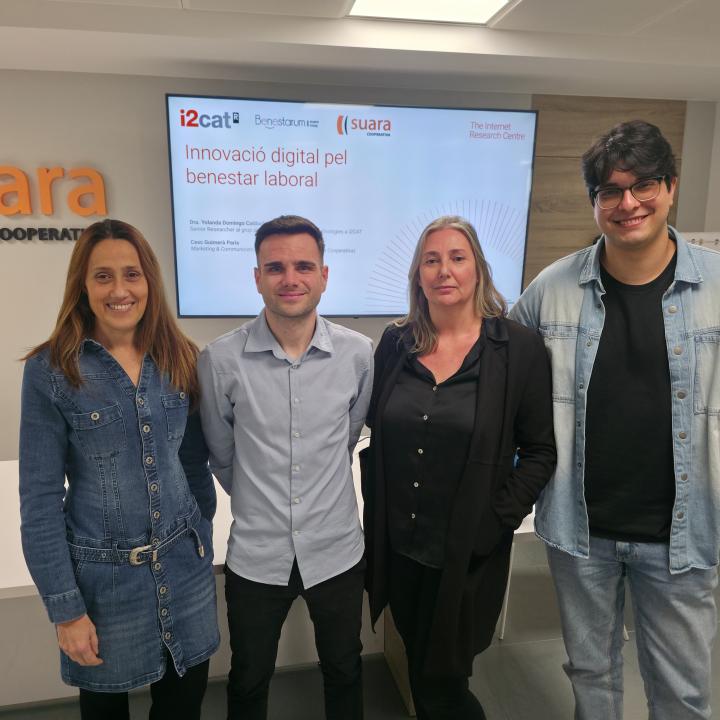At Suara Cooperativa we have been managing different resources from the Department of Justice for ten years, a path that we began in 2014 with the Reintegration Apartment in Figueres. During this time, we have been able to see how this service benefits the social reintegration of people who are serving a criminal measure and improves public safety by creating less recidivism, and fewer victims.
The prison population in Catalonia only represents 0.01% of Catalan society, but what is the profile of the people who make it up? The reality is that these are people who often come from situations of exclusion and vulnerability, with personality disorders and/or mental health problems and/or addictions, who have not committed serious crimes of violence, most of which are against property, theft and/or robbery where the problem of consumption is often a key factor. Approximately 90% of people serving time in a penitentiary are men of Spanish nationality, according to official data.
In the book “No hi ha bestia tan ferotje”, Edward Bunker tells the story of Max Dembo, who after serving an eight-year sentence in prison in the US, wants to leave his past as a criminal behind and re-enter society. An arduous task if you have not known any other way of life and the system offers you practically no opportunities or resources in the reintegration process.
Without a doubt, it is very complicated for the prison population to be able to carry out positive social reintegration processes, if they are not given, or have, the social and personal resources that they should have to build their life projects, which are very similar to the rest of society: a house, a job, an income, a “family” and a stable legal situation.
However, the number of people who do not re-offend is very high in Catalonia. According to the Department of Justice, 80% of people who go through a penitentiary do not commit a crime again, a figure that rises to 90% in the case of those who have obtained a semi-liberty regime reaching conditional release. One of the best results in Europe.
With the aim of guaranteeing the reintegration of the group, the Department of Justice has different resources for both people who are in a semi-liberty regime and those who have already served their sentence, often managed by third sector entities, such as Suara Cooperativa.
Apartments for social reintegration
In 2014, Suara Cooperativa began managing a reintegration apartment in Figueres for people who enjoy penitentiary permits, semi-liberty and occasionally definitive release. This is a mixed housing for men and women who are serving their sentence, but who, for various reasons, do not have the resources or the opportunity to return to their family environment, if they have one, a highly complex situation.
For this reason, these residential places are offered to them, in which they are welcomed and provided with individualized support centered on the person with the aim of being able to restart their own path and rebuild their life project. Among other things, they are helped to improve their social and personal skills, to manage their leisure time, to find a job or to carry out a training and work itinerary, as well as legal advice. Therefore, the ultimate goal is to empower people and provide them with resources so that they themselves can move forward and, therefore, become the protagonists of their life processes.
Dependent Units
Another resource that facilitates the social reintegration of this group is the Dependent Justice Units, aimed at allowing people who have been granted a semi-liberty regime such as the third degree to spend the night in these homes instead of the penitentiary. In these spaces, they can have a better life in the community and with more individualized support.
In this way, they can have a life as similar as possible to their future conditional or definitive release, and be able to work on it with their own closest social context. Each person has an Individual Work Plan that sets out the main objectives and areas, the most key ones; training and employment insertion, the relationship with their families, monitoring of specific health treatments and other types of actions based on the needs of the people. In addition, another advantage is that this modality also favors their reintegration, as it can reduce the social stigma surrounding these people and these processes.
Currently, there are 17 Justice Dependent Units in Catalonia and from Suara Cooperativa we manage three of them. We began managing the first of them in 2018 in Alt Empordà and since last year we have also managed one in Baix Llobregat and another in Vallès Occidental.
More opportunities
After 10 years of managing services and resources for the Department of Justice, Suara Cooperativa has seen the importance of these for people's social reintegration. 20% of the Catalan population lives in a situation of poverty, vulnerability or risk of social exclusion. Food, housing or access to health, among others, are basic rights that many people in prison do not know what they are. Once they regain their freedom, we cannot deny them these rights again.
Therefore, on February 20, World Day of Social Justice, we want Catalonia to continue providing more resources to encourage people deprived of their liberty to build their life projects. Unfortunately, until we eliminate the existing social, economic and digital gaps, there will be people in prisons who come from contexts and situations of vulnerability that do not allow them to have the same opportunities as those who are free.
As a society, we must give opportunities to people who have made a mistake, because we will promote social justice, which we want for ourselves, but also to improve the citizen security that we desire. Everyone deserves the opportunities that are relevant to redo their vital projects, for the common good.
Sergi Fortià,
Operational director of Suara Cooperativa



